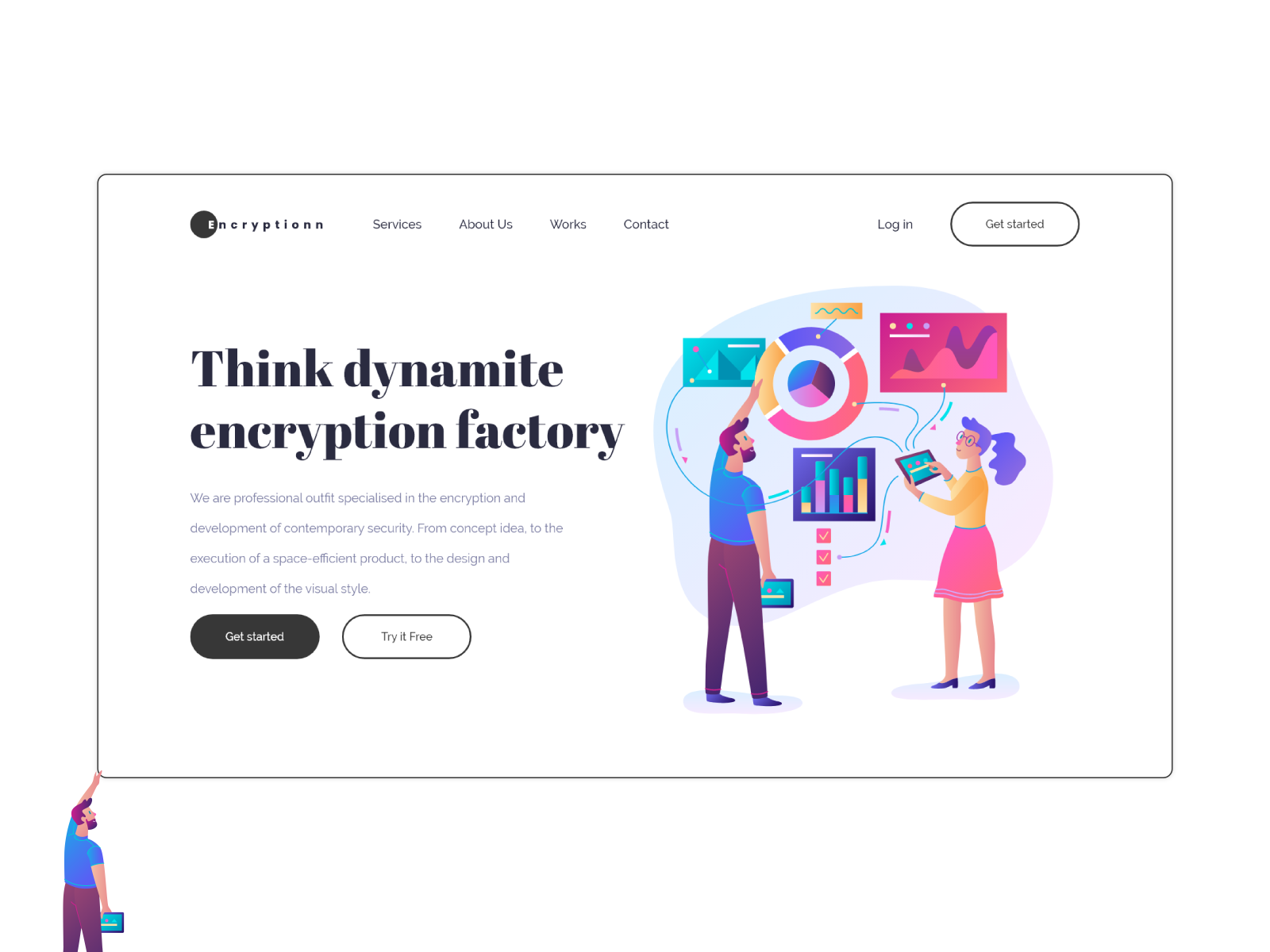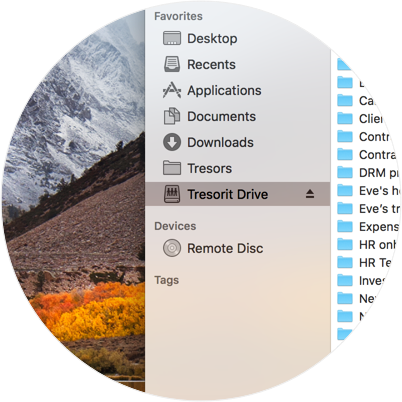

If you don't need that much space, 500GB of pCloud with Crypto is available for $95.76 a year, which works out to roughly $8 a month. Premium is also missing permission controls, password-protected file sharing links, and Outlook integration. Premium is a 5-device license, while Solo is a 10-device license. Premium's activity log is capped at 90 days, while Solo's is unlimited. (Meanwhile, SpiderOak is offering 5TB for $275 a year.) For example, Tresorit Premium is limited to 10 different versions of a file, but Tresorit Solo is unlimited.
#Tresorit mac full
Tresorit's 2TB "Solo" tier comes in at $30 a month or $288 a year - and you must get it if you want access to the full suite of features, whereas pCloud provides all features to every tier, even the free one. 2TB of pCloud with its Crypto add-on can be had for $143.76 a year. SpiderOak One offers 2TB for $12 a month or $129 a year - 10 times the storage, for nearly the same price. Its entry-level Premium tier gives you 200GB for $12.50 a month or about $125 a year. Relatively pricey: Compared to SpiderOak One and pCloud Crypto, Tresorit is the most expensive choice. However, given how much more Tresorit costs than SpiderOak and pCloud, it's not unreasonable to expect something more robust. Unfortunately, there is no live chat or customer support number, but Tresorit's basic contact form is actually in line with what the competition offers. The bottom of the page also has a "recently viewed articles" section, so you can easily retrace your steps if you need to. There's also a sidebar containing links to related questions that you might ask. Each of these pages has an author cited by name, with a profile picture, and you can tap a Follow button on the page to track any future changes to it.
#Tresorit mac how to
For example, typing the word "password" returns pages about how to create a strong password, how to change it, and technical details about how your password is managed. The support website will offer suggestions as you type. You can browse by category, or type a question into the search bar. Well-designed support pages: If you have a question about how to operate a particular function of Tresorit, the company's support documents are easy to find and search. You'll soon understand how to add files and folders to your cloud storage, how to securely share links to those items, and how to sync the contents of your cloud with other devices. The first time you open the app, you get a checklist of basic activities to familiarize yourself, and hovering your mouse over each step in a checklist item will highlight exactly where to click to advance to the next phase of a task.


Compared to E2E rivals SpiderOak and pCloud, this app feels the most complete, and it's arguably the most approachable one for non-technical users.
#Tresorit mac windows
For less technical users, this may be an unacceptable gamble, but it's a compelling idea for people who want more digital privacy.Ī high-quality desktop app: Tresorit's Windows app is one of the best we've tried so far, with intuitive navigation and a variety of data management tools. On the other hand, if you lose your password, Tresorit cannot reset it for you, so you lose access to your account. No unauthorized third party can peek inside - not even Tresorit - which gives home users a much higher degree of privacy than they will get from Google Drive, iCloud, Microsoft OneDrive, or Amazon Drive. How does it compare to rivals SpiderOak and pCloud? Prosīuilt-in end-to-end (E2E) encryption: With E2E-encrypted storage, only you have access to your files in the cloud. Tresorit, based in Switzerland and claiming over 10,000 organizations as customers, is one of a growing number of cloud storage services that offer E2E cloud storage. Instead, all of these services keep a copy of your encryption keys, so what you put in there is never truly private. While Google, Apple, Microsoft and others offer lots of cloud storage at reasonable prices, home users don't get end-to-end (E2E) encryption, where only the user can access their files.


 0 kommentar(er)
0 kommentar(er)
